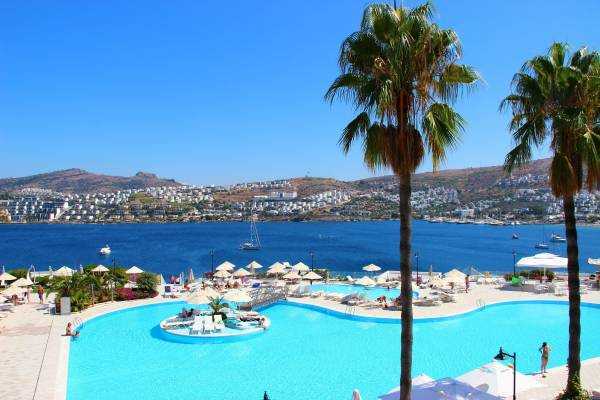The Association of Tour Operators of Russia discussed Turkey's tourism prospects in 2019 and the country's main competitors.

At the congress in Antalya, a meeting of hoteliers, tour operators, and local officials was held, where they summed up the expected 2018 results. The outgoing year was a very successful one for Turkey as a whole, as well as for the Antalya resort: over the course of the entire year, the resort will welcome approximately 13.5 million tourists, which is 281,000 tourists more than last year.
Turkey, incidentally, hasn't lost hope and is ready to welcome up to 50 million tourists in 2023, and 70 million travelers by 2025, of which only 20 million will come to Antalya, said Erkan Yagci, president of the Association of Mediterranean Tourism Hotels and Operators (AKTOV).
According to him, Russia and Germany alone cannot handle such a large tourist flow, so China will also be involved, with the potential to send around 10 million tourists to Turkey per year.
According to Osman Ayrik, head of the Turkish Hoteliers Federation (TUROFED), the country's hard times are behind it. The crisis lasted from 2015 to 2016, when a series of terrorist attacks occurred and relations with Russia were strained. At that time, Turkey's tourism industry lost approximately $50 billion. He claims that if not for those problems, Turkey would have welcomed 50 million tourists this year.

Osman Ayryk also noted that Türkiye could, in principle, accommodate 80 million people, but the country has one main competitor: Spain. He stated that Türkiye would be able to accommodate the same number of travelers as Spain currently does.
"There are two competing destinations in the Mediterranean: Spain and Turkey. They're like communicating vessels. When the number of tourists in Spain increases, it declines in Turkey; as soon as we have more tourists, like this year, fewer people go to Spain. Nevertheless, Spain received 81.8 million tourists and $87 billion in tourism revenue last year, while Turkey reached 32.4 million tourists and $26.2 billion in revenue. The difference is significant. We need to study Spain's experience and understand how they manage to attract so many tourists and generate so much money," explained Osman Ayrık, head of the Turkish Hoteliers Federation.
He also believes the country needs to introduce so-called "smart tourism," embrace greater digitalization to promote the tourism industry, and offer more vacation options to tourists, including winter resorts. This will make tourism in Turkey year-round and all-season. He also stated that the traditional tools for supporting tourism will certainly remain, such as subsidizing airline fuel costs.
As a reminder, over the past two years, the average hotel occupancy rate at Turkish ski resorts reached a record high of 701 TP3T. According to the Association's president, hotels will be occupied to 1001 TP3T during the New Year holidays.
Source: trn-news.ru













